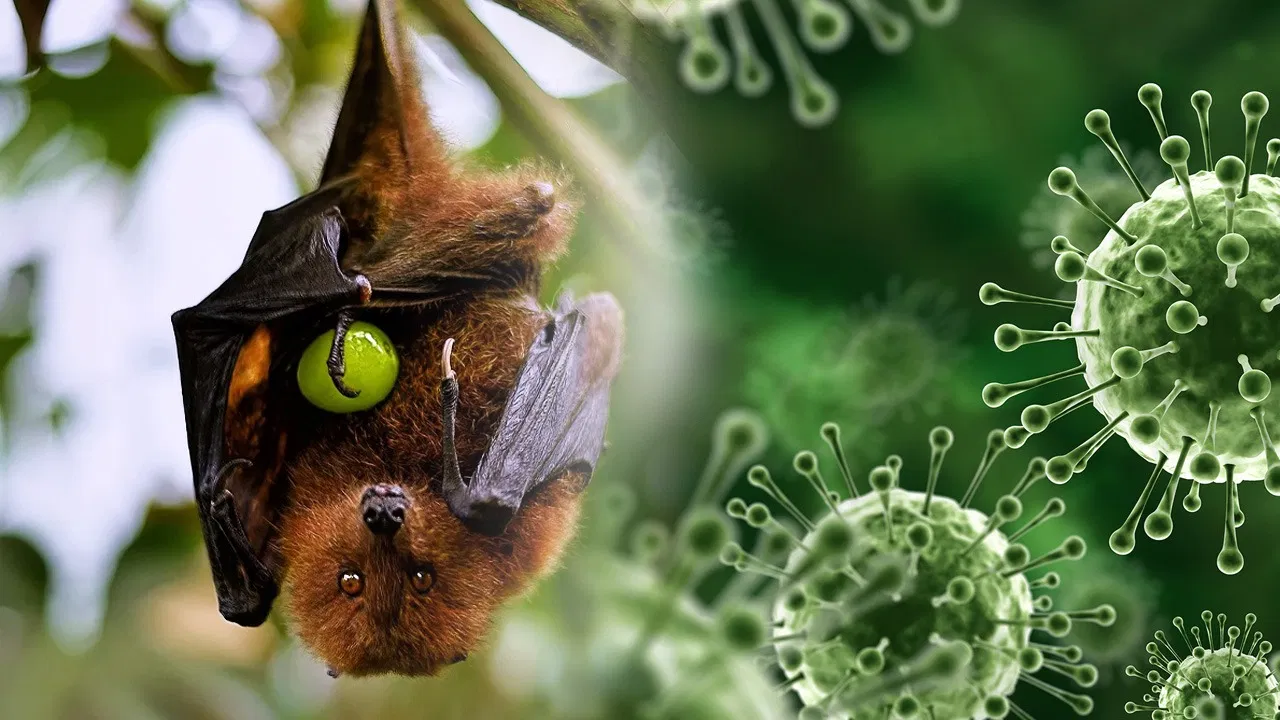The Nipah virus is transmitted from bats to humans through contact with infected bat saliva or urine. It can also be transmitted from person to person through close contact with an infected person’s respiratory droplets or body fluids.

Symptoms of Nipah virus infection typically appear within 4 to 14 days of exposure. The most common symptoms include fever, headache, myalgia (muscle pain), vomiting, and seizures. In severe cases, the virus can cause encephalitis (brain swelling) and coma.
There is no specific treatment for Nipah virus infection. Treatment is supportive and includes measures such as providing fluids and electrolytes, managing fever, and treating seizures.
The best way to prevent Nipah virus infection is to avoid contact with bats and infected animals. If you must handle bats, wear personal protective equipment (PPE) such as gloves, a mask, and goggles. You should also avoid contact with the saliva and urine of bats.
